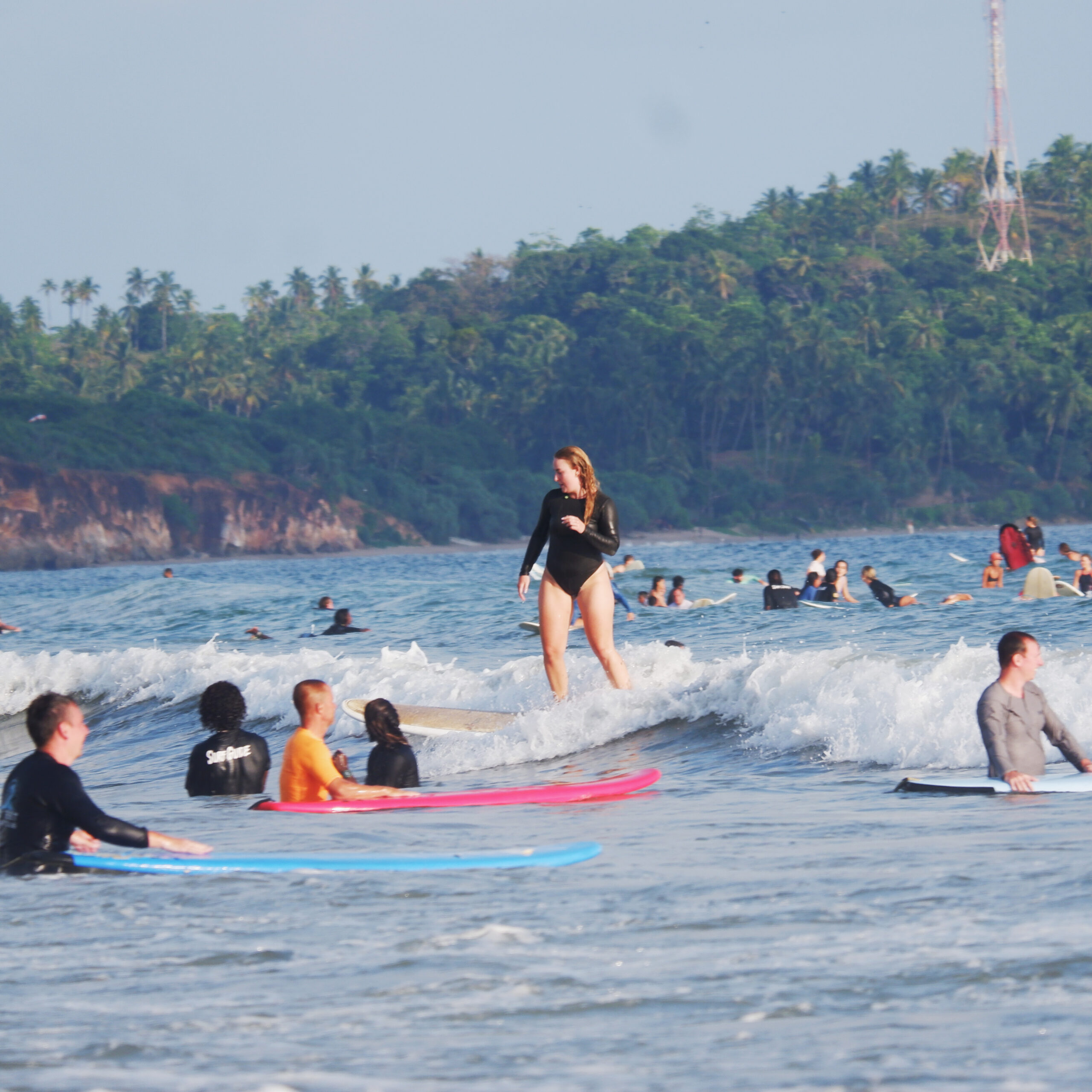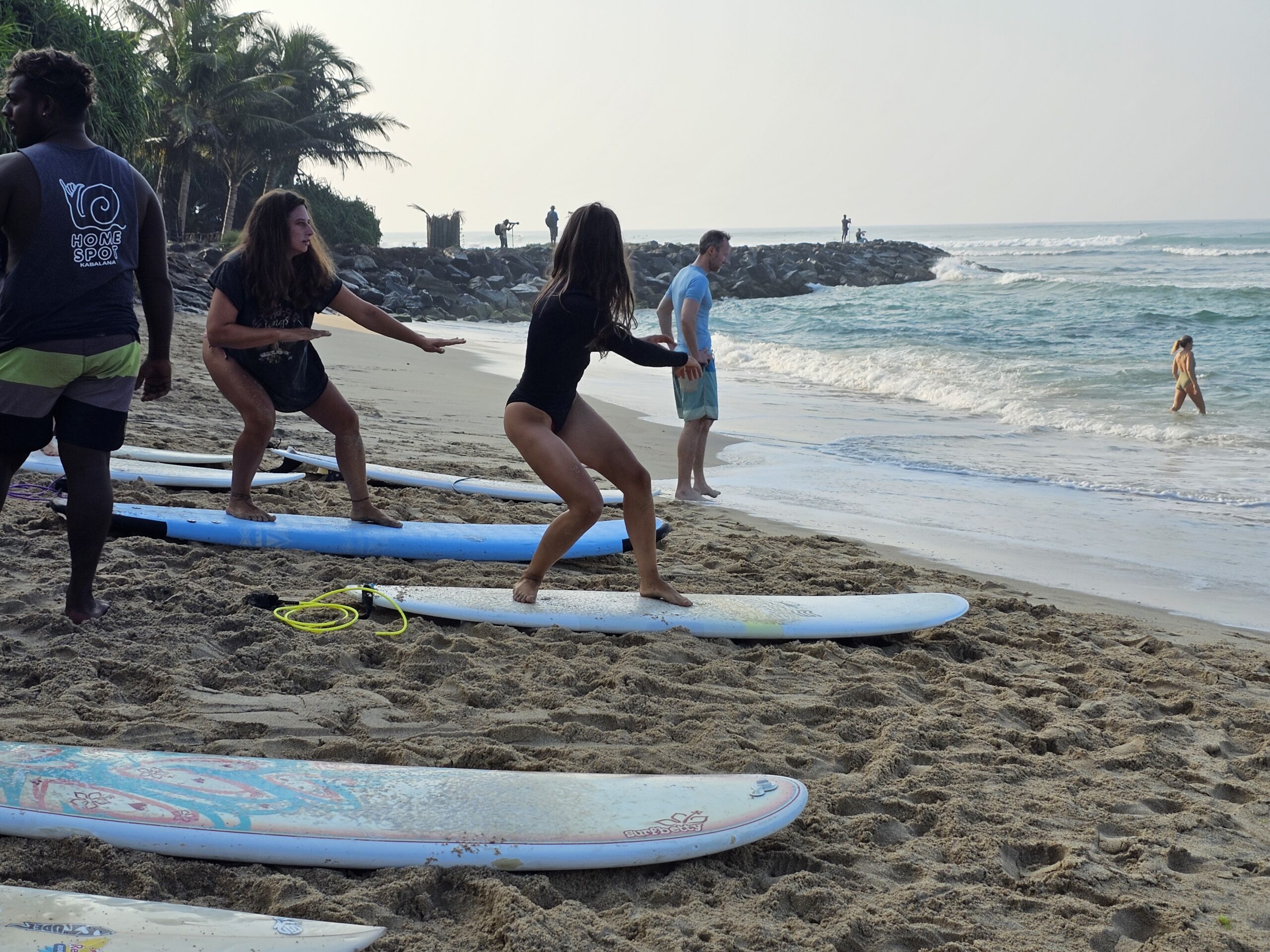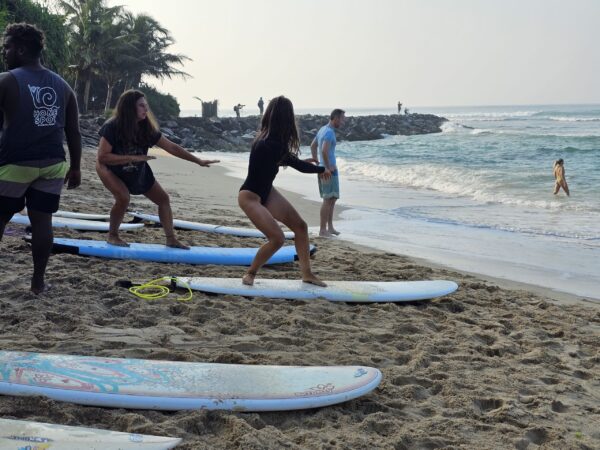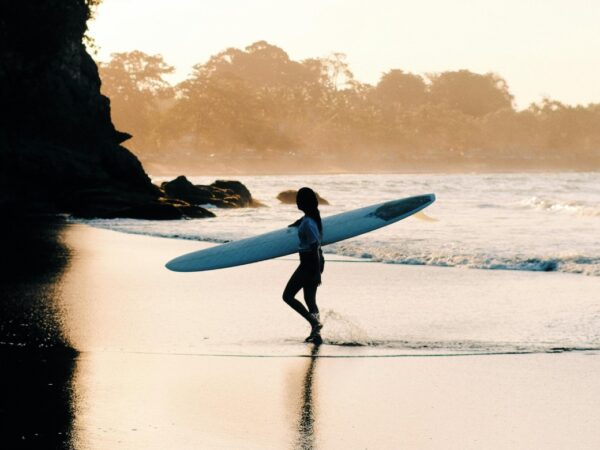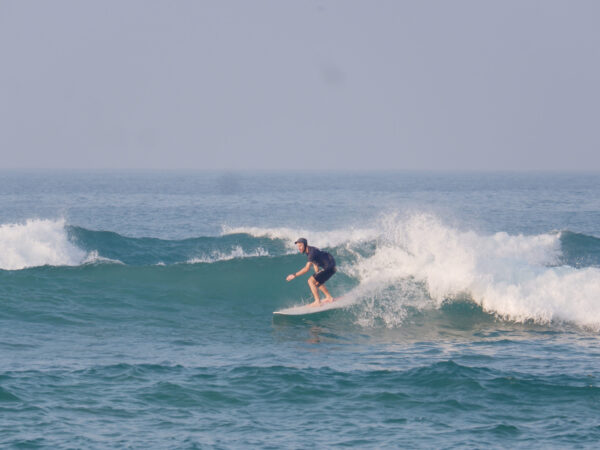Surfing is an exhilarating sport that combines the thrill of riding waves with the serenity of being in the ocean. However, like any new endeavor, learning to surf comes with its fair share of challenges. For beginners, the journey can be filled with excitement, but also with a series of common mistakes. Understanding and avoiding these pitfalls can significantly enhance the learning experience and pave the way for quicker progress. Here are some classic mistakes that beginner surfers often make – and we ( thankfully at Blissful Beach Bum Surf School Weligama, Srilanka ensure our students avoid. Read on and and please do checkout out SURFING OPTIONS
We are also on Trip Advisor and INSTAGRAM
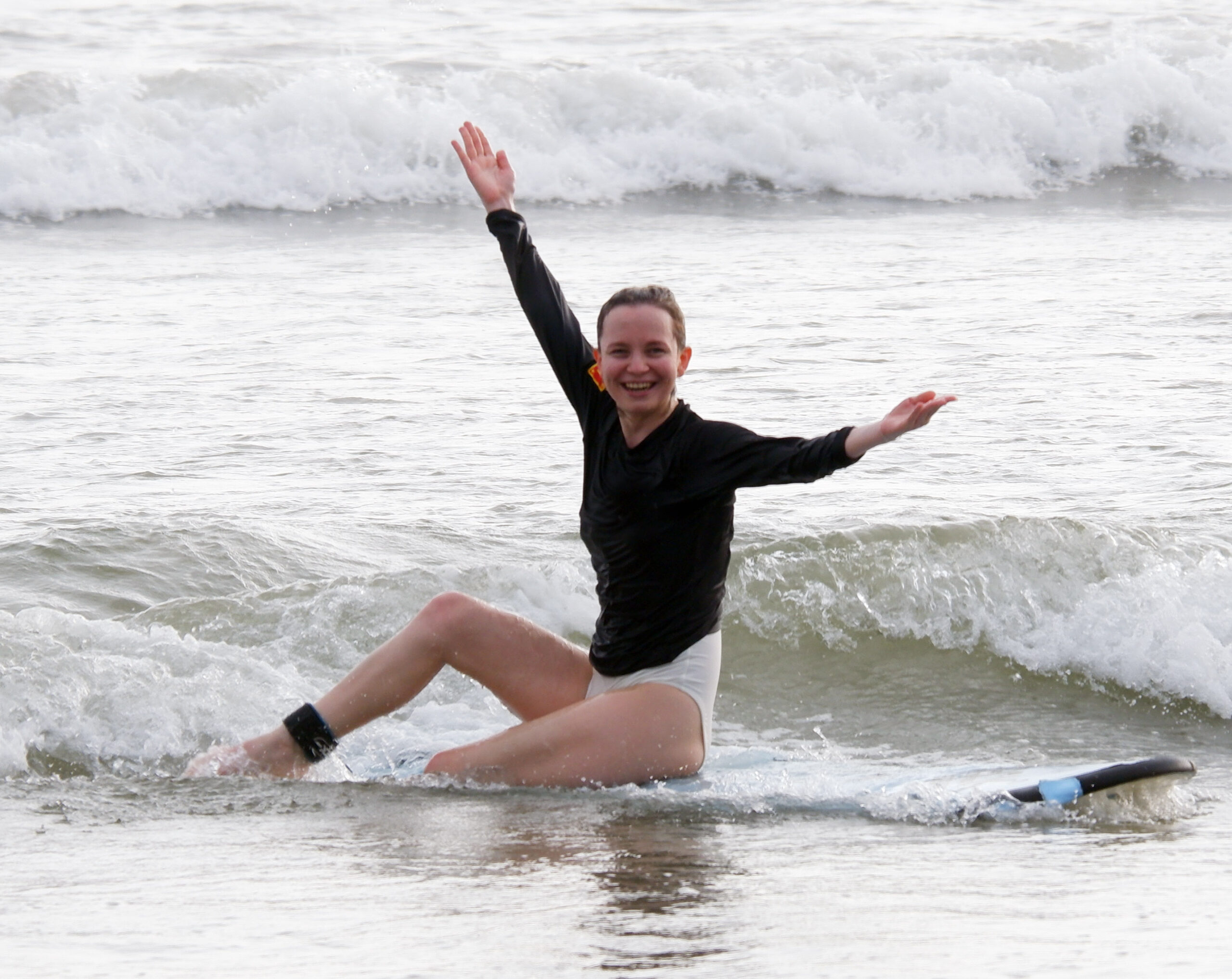
**Choosing the Wrong Surfboard**
One of the most frequent mistakes new surfers make is selecting the wrong surfboard. Beginners often opt for shortboards because they look cool or because they see experienced surfers using them. However, shortboards are much less stable and harder to paddle on, making them unsuitable for those just starting out. Beginners should start with a longboard or a foam board, which offer more stability and buoyancy, making it easier to catch waves and balance.
**Neglecting Surf Etiquette**
Surfing has its own set of unwritten rules and etiquette, which are crucial for safety and mutual respect among surfers. New surfers often unknowingly drop in on other surfers, paddle directly into the lineup, or fail to yield the right of way. Learning and adhering to surf etiquette, such as not dropping in on someone else’s wave and taking turns, can prevent accidents and foster a friendly surfing environment.
**Paddling Incorrectly**
Paddling is an essential skill in surfing, and doing it correctly can make a big difference. Beginners often make the mistake of either paddling too slowly or too quickly, both of which can hinder their ability to catch waves. Effective paddling involves a steady, rhythmic motion with deep strokes, ensuring the surfer gains enough speed to catch the wave. Additionally, keeping the body centered on the board and using a relaxed yet firm stroke can improve paddling efficiency.
**Improper Positioning on the Board**
Poitioning on the surfboard is critical for balance and maneuverability. Beginners often lie too far forward or too far back on the board. Lying too far forward can cause the nose to dip underwater, while lying too far back can make it difficult to catch waves. The correct position is typically with the body centered and the chest lifted, allowing for optimal balance and control.
**Standing Up Too Early or Too Late**
Timing is everything in surfing, especially when it comes to standing up on the board. Beginners frequently attempt to stand up either too early, before the wave has fully formed, or too late, after the wave has already passed. The key is to pop up just as the wave starts to lift the back of the board. Practicing this timing can help new surfers catch more waves and ride them successfully.
**Ignoring Weather and Wave Conditions**
Understanding the ocean and weather conditions is crucial for a successful surfing session. Beginners might head out in unsuitable conditions, such as overly rough seas, strong currents, or poor visibility. It’s important to check the surf forecast, understand tide patterns, and recognize signs of dangerous conditions like rip currents. Starting on small, gentle waves is ideal for learning and gaining confidence.
**Skipping Warm-Up Exercises**
Surfing is physically demanding, and like any sport, it requires proper preparation. Beginners often skip warm-up exercises, leading to stiffness and increased risk of injury. A good warm-up routine includes stretching, light cardio, and joint mobility exercises. This not only prepares the muscles and joints for the physical activity but also enhances overall performance.
**Relying Solely on Self-Teaching**
While some aspects of surfing can be self-taught, beginners often progress more quickly with professional instruction. Surf schools and experienced instructors can provide valuable insights, correct bad habits early on, and offer tailored advice. Taking a few lessons can significantly improve technique and safety awareness, making the learning process more enjoyable and effective.
**Underestimating the Importance of Fitness**
Surfing requires a good level of overall fitness, including strength, endurance, and flexibility. Beginners often underestimate how physically demanding the sport can be. Incorporating regular fitness routines that focus on core strength, upper body strength, and cardiovascular endurance can greatly enhance a beginner’s ability to surf. Yoga and swimming are particularly beneficial for improving balance, flexibility, and breath control.
**Being Impatient and Frustrated**
Learning to surf is a gradual process that requires patience and persistence. Beginners often expect quick results and become frustrated when progress is slow. It’s important to set realistic expectations and enjoy each step of the learning journey. Celebrating small victories, such as successfully catching a wave or improving paddling technique, can keep motivation high and make the experience more rewarding.
**Not Practicing Water Safety**
Safety should always be a top priority in surfing. Beginners sometimes overlook the importance of water safety knowledge. Understanding how to read the ocean, recognizing hazards, and knowing basic first aid and rescue techniques are crucial. Additionally, always surfing with a buddy and informing someone onshore of your plans can enhance safety.
**Using Incorrect Foot Placement**
Proper foot placement is vital for balance and control on the board. Beginners often place their feet too close together or too far apart, leading to instability. The correct stance involves having feet shoulder-width apart, knees slightly bent, and weight centered over the board. Practicing pop-ups on the beach before hitting the water can help establish muscle memory for correct foot placement.
Surfing is a rewarding and enjoyable sport, but it comes with a steep learning curve. By avoiding these common mistakes, beginners can enhance their learning experience, improve their skills more quickly, and stay safe in the water. Remember, every expert surfer was once a beginner. Embrace the learning process, stay patient, and most importantly, have fun riding the waves!
Check out options to sign up for SURFING ON OUR WEBSITE
Foam is your friend. Don’t be scared of it. A little bit of extra foam here and there is good for the soul, and your surfing
